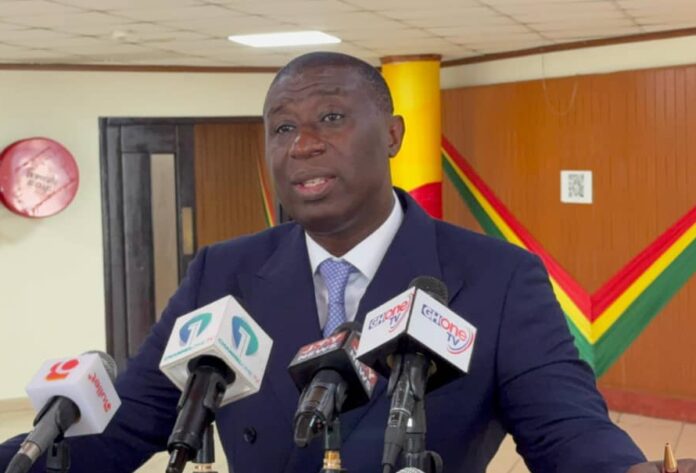The Member of Parliament for Okaikoi Central, Hon. Patrick Yaw Boamah, has reaffirmed the Minority Caucus’s commitment to cooperation in the ongoing vetting of Supreme Court nominees, dismissing any speculation of a boycott or procedural disruption by the opposition.
Addressing journalists just before vetting session by the Appointments Committee on Monday, Hon. Boamah, a senior member of the committee, emphasized the
Minority’s respect for the judiciary and its intention to ensure a smooth, objective vetting process.
“We’ve practiced before these justices. We respect them, and we will do our duty with that respect in mind,” he stated.
Supreme Court nominees
Parliament officially began the vetting of seven Supreme Court nominees nominated by President John Dramani Mahama. The nominees include: Justice Senyo Dzamefe, Justice Sir Dennis Dominic Adjei, Justice Gbiel Simon Suurbaareh, Justice Philip Bright Mensah, Justice Janapare Adzua Bartels-Kodwo, Justice Hafisata Amaleboba and Justice Kweku Tawiah Ackaah-Boafo.
The Appointments Committee began its sittings early Monday, with the first three nominees taking their turns before the panel. The vetting is expected to continue over three days, after which the committee will present a report to Parliament for final approval or rejection of the nominees.
Addressing concerns raised in some quarters about the number of justices being appointed, Hon. Boamah called for a shift from political speculation to judicial capacity-building.
“At one point, members of the NDC questioned appointments made by a previous administration. But every appointment is driven by necessity – retirement, resignation, or even death,” he explained.
He stressed the growing workload of the Supreme Court, noting that its jurisdiction goes beyond constitutional interpretation to include complex matters such as human rights enforcement, interlocutory and appellate cases, chieftaincy disputes, and election petitions.
“Can 13 or 14 justices handle all of that?” Boamah asked pointedly, emphasizing the urgent need to bolster the bench to maintain judicial efficiency.
He also noted that justices are frequently pulled from regular court duties to serve on electoral panels or commissions of inquiry, further straining the system.
“Let’s not politicize the numbers on the court. Let’s assess the real functional demands on our judiciary. Even the Chief Justice, at a certain point, formally requested an increase in the number of justices to manage the caseload,” he stressed.
By Osumanu Al-Hassan/thenewsbulletin24.com


